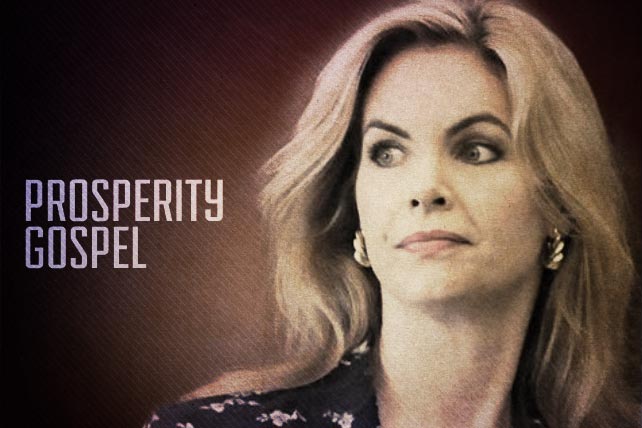Recently, Christian Twitter was alive with the ridiculous and sad clip of Victoria Osteen’s blatant prosperity gospel declaration. “We go to church, not for God, but for us.” I especially liked the enterprising blogger who affixed Bill Cosby’s “That’s the stupidest thing I’ve ever heard” to the end of the clip. Well done.
But before we conservatives get too cocky in our outrage, we’d be wise to admit to our own version of the prosperity gospel, a kind of false message that creeps into our gospel proclamation.
None of us is offering people paradise like the Osteens, especially those of us who have travelled to third-world countries and have seen firsthand the crippling poverty experienced by people with faith much greater than our own. Nor would we dare to tell our persecuted brothers and sisters in the Middle East that with just a bit more faith they might be able to outrun their ISIS persecutors. To do that would not just make us modern-day friends of Job, it would make us false prophets.
What we might be tempted to do, those of us with our airtight theology, is offer a subtler version of the prosperity message in the way we talk about sanctification in this life.
I grew up hearing that what the troubled and broken world really needs is Jesus. I still believe this, even more so now than I did as a child. But what I heard then and what I hear now about our need for Jesus is markedly different.
My ears heard then, “If only the drunkard would walk forward and trust Christ, he’d find relief for his addiction,” or “If only the depressed or mentally ill (we didn’t use that word, actually) would know Jesus, they’d find happiness.”
But what I hear now from the gospel is different. I hear now: “Come to Jesus and he’ll begin the process of making who you whole, but the full work of restoration won’t happen until He consummates His kingdom.”
There’s a big difference between the two. One says that upon salvation, all of the Fall’s crush upon your soul will be unraveled. Everything will be made new—now. But is this true? We know this doesn’t happen, even from our own lives. Many years after salvation, we still struggle with sins that “so easily beset us” (Hebrews 12:1).
As a pastor, I saw firsthand the pervasive effects of the Fall, how the curse so gnarled up human lives. Some of those knots will be unwound in this life. Most will have to wait until Heaven to see full restoration.
Is this not what Paul was saying when he talks in 2 Corinthians 4 about “treasure in earthen vessels” that is “crushed, perplexed and persecuted.” The treasure is Jesus, but the vessel—body, mind, soul—is fragile and broken. Christ is doing an ongoing work in us, but it’s a work that is far from finished. Our “outer self is wasting away” but our “inner self is being renewed day by day.” Sanctification—not a one-time event that happens when we walk the aisle—is an ongoing work within. There is, Paul says, “an eternal weight of glory” that awaits us. Our full, final and complete restoration.












